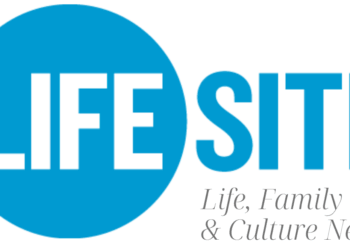(LifeSiteNews) — Acknowledging recent controversies in organ transplantation, the world’s largest medical specialty organization, the American College of Physicians (ACP) has just published a new position paper on transplant ethics.
This paper reminds physicians that patient care is their primary duty, and that end-of-life decision making must center around the best interests of these individual patients — not the interests of other people who might benefit from their organs. “It is unethical, before the declaration of death, to use any treatments or interventions aimed at preserving organs or assessing their suitability for donation that may harm the still-living patient by causing pain, causing traumatic injury, or shortening the patient’s life.”
The ACP references examples of interventions that are currently being used to optimize organs for transplantation while the prospective organ donor is still alive: interventions the ACP deems unethical. For example, the American Society of Transplant Surgeons’ “best practices” in donation after circulatory death (DCD) organ procurement recommends (for the benefit of the organs) inserting arterial catheters into prospective organ donors, and administering 30,000 units of the blood thinner heparin intravenously prior to withdrawing the donor’s life-sustaining care. Not only is the insertion of arterial catheters painful, but this amount of heparin far exceeds the usual dose and could potentially exacerbate the patient’s injuries.
Also, the Society of Critical Care Medicine, American College of Chest Physicians, and Association of Organ Procurement Organizations, in their consensus statement, “Management of the Potential Organ Donor in the ICU,” recommended that bronchoscopy be performed in all potential lung donors prior to donation. Since bronchoscopy involves putting a tube down the patient’s throat and into the lungs, it is an uncomfortable procedure. Moreover, it is being done, not for the benefit of the patient, but for the benefit of the possible lung recipient. This too would seem to violate the new ACP ethics policy.
RELATED: Hospitals are using ‘circulatory death’ to harvest organs of living people
It has even been suggested that (in order to procure a good-quality organ) DCD donors donate their kidneys before their life-sustaining care is withdrawn. Certainly, undergoing surgery to remove a kidney qualifies as a painful procedure, and would definitely violate the ACP’s position paper on transplant ethics.
The ACP states that these premortem interventions are especially problematic because 25-50% of DCD donors end up unable to donate their organs, and because some patients survive to be discharged from the hospital. Lindsey Speir, executive vice president for organ procurement at Mid-America Transplant, told KFF Health News that she has seen patients’ conditions change:
It definitely happens multiple times a year where we get consent. The family has made a decision, we approach, we get consent, it’s all appropriate, and then a day or so later they improve and we’re like, “Whoa.”
The ACP’s statement also emphasizes the importance of complete transparency and fully informed consent for organ donors: “Ethical norms require respecting informed patient choices. Trust is fragile; even perceptions that these norms are being violated may erode public trust and reduce willingness to donate.”
But currently, personnel with no medical training at the Department of Motor Vehicles routinely ask drivers if they would like to become organ donors without providing any information to guide people in their decision making. Most people learn about organ donation via slogans and tax payer-funded public service announcements, such as “Give the Gift of Life!” Those wanting more information might go to the Heath Resources and Services Administration’s (HRSA) website, organdonor.gov, where they would find definitions of brain death and donation after circulatory death that are factually incorrect.
The HRSA’s website glossary defines brain death this way: “Brain death occurs when the brain is totally and irreversibly non-functional. Brain death is caused by not enough blood supply of oxygen which causes the brain cells to die.” This definition is incorrect because the latest (2023) American Academy of Neurology (AAN) brain death guideline explicitly states that brain death may be declared in the presence of ongoing brain function. Also, the AAN guideline has been shown to be unable to predict irreversibility, as in the case of Jahi McMath and others who have recovered from a brain death diagnosis which was made according to the guideline. True death is an irreversible state. Brain death has been shown to be reversible and is not true death.
The HRSA’s website definition for donation after circulatory death (DCD) is also incorrect. They say that circulatory death “occurs when a person’s heart stops and cannot be resuscitated. Just like brain death, there is no recovery from circulatory death (also known as cardiac death).” What they leave out is that DCD donors could be resuscitated but have been given a “do not resuscitate” order – therefore while they could be resuscitated, a decision has been made not to do so. These people’s organs are removed a mere 2-5 minutes after they become pulseless. But it is well documented that people are routinely resuscitated within this short timeframe, and people have spontaneously recovered a heartbeat up to ten minutes following cardiac arrest with complete recovery. If you could still be resuscitated, you were never dead. This is why some people have been found to have beating hearts when their breastbones were sawed open for organ donation, like Misty Hawkins, whose tragic case was recently reported by The New York Times.
RELATED: ‘Brain death’ was invented to harvest more organs
The ACP position paper states, “Informed consent requires conveying information that patients and surrogates may deem relevant for decision making.” Relevant information to allow fully informed consent might include the following:
- If you consent to be an organ donor, irrevocable organ procurement policies are set into motion to ensure your desire to be an organ donor is honored. Your health care surrogate, spouse, or family member cannot stop this process without a court order.
- In the case of brain death, even though you are declared legally dead, you are not biologically dead. Your heart is still beating, your lungs aerate with the help of a ventilator, and your vital body systems continue to function. There is also no evidence that the spirits of “brain dead” people have departed.
- The apnea test, which is a component of the examination for brain death, can worsen a brain injury and cause serious complications including cardiac arrest.
- In preparation for the surgery to procure your organs, it is likely that paralyzing agents will be administered to prevent you from moving.
- During the surgery to procure your organs, you are not guaranteed anesthesia to treat objective signs of bodily distress (e.g., muscle tensing, heart rate elevations, and blood pressure increases).
- DCD organ donation begins just 2-5 minutes after cardiac arrest, a time frame during which resuscitation is still possible. People have spontaneously regained a heartbeat and made a full recovery after as many as ten minutes of cardiac arrest.
- Some people have recovered with ongoing medical treatment after being declared legally dead.
Until the ethical problems identified by the ACP’s position paper are remedied, and correct information is provided to allow fully informed consent, registering as an organ donor will remain hazardous.
Heidi Klessig MD is a retired anesthesiologist and pain management specialist who writes and speaks on the ethics of organ donation and transplantation. She is the author of “The Brain Death Fallacy” and her work may be found at respectforhumanlife.com.















